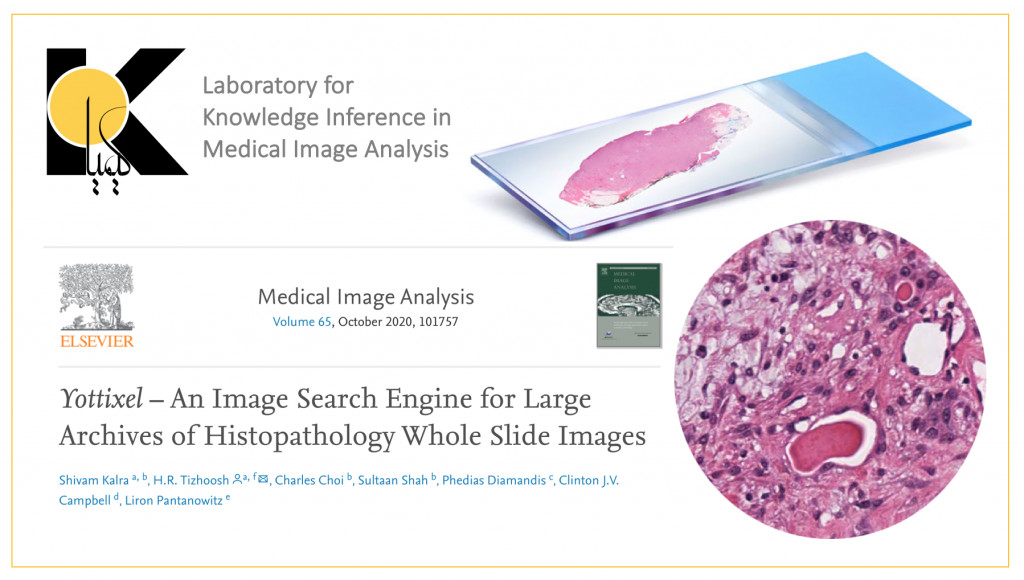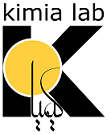
Artificial intelligence technology will be used to help modernize US federal pathology facility
Waterloo, ON, October 26, 2020 – Technology developed by Kimia researchers has been adopted by a major pathology facility in the United States.
The Joint Pathology Center (JPC), which has the world’s largest collection of preserved human tissue samples, will use an artificial intelligence (AI) search engine to index and search its digital archive as part of a modernization effort.
Development of the system was led by researchers at the Laboratory for Knowledge Inference in Medical Image Analysis (KIMIA Lab) at Waterloo. It was commercialized by partner Huron Digital Pathology of St. Jacobs.
The image retrieval technology, with the scientific name Yottixel, allows pathologists, researchers and educators to search large archives of digital images to tap into rich diagnostic data.
To be used for biomedical research
It will be used to enhance biomedical research for infectious diseases and cancer, enabling easier data sharing to facilitate collaboration and medical advances.
The JPC is the leading pathology reference centre for the US federal government and part of the US Defense Health Agency
In the last century, it has collected more than 55 million glass slides and 35 million tissue block samples. Its data spans every major epidemic and pandemic, and was used to sequence the Spanish flu virus of 1918. It is expected that the modernization also helps to better understand and fight the COVID-19 pandemic.
A Globally Unique Repository
“We are delighted to see that our algorithms are about to explore the world largest digital archive of biopsy samples” Professor Hamid Tizhoosh, the Director of Kimia Lab, says, “we will continue to design and commercialize novel AI solutions for the medical field. The opportunity comes with unprecedent challenges that need fresh ideas and established competency to fully exploit the big data for the diagnostic imaging of future.”
Researchers at Waterloo have obtained promising diagnostic results using their AI search technology to match digital images of tissue samples in suspected cancer cases with known cases in a data base.
In a paper published earlier this year, a validation project led by Kimia Lab achieved accurate diagnoses for 32 kinds of cancer in 25 organs and body parts.
“We showed it is possible using this approach to get incredibly encouraging results if you have access to a large archive,” said Hamid Tizhoosh, a systems design engineering professor and director of the KIMIA Lab. “Image search is undoubtedly a platform to intelligently explore big data and enable what we call virtual peer review: It is like putting many experts in a virtual room and having them reach consensus.”
